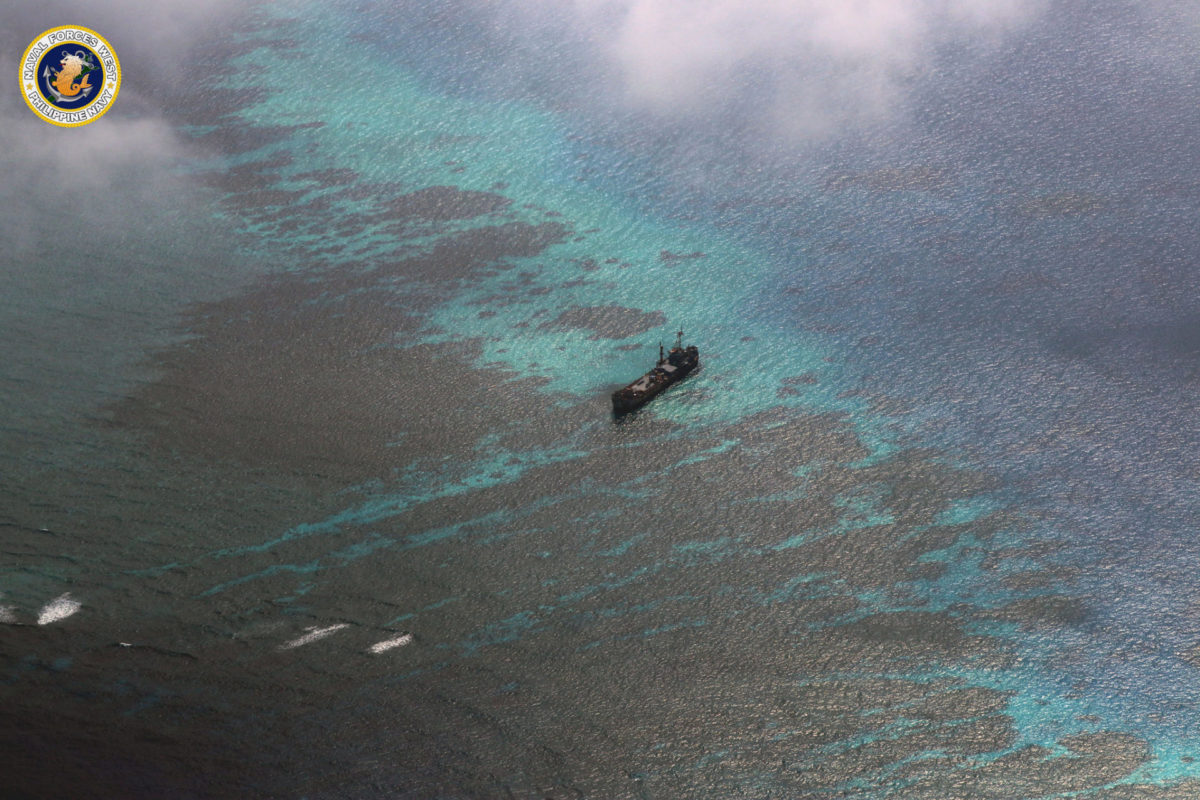A “horrified” President Ferdinand Marcos Jr. said his administration is unaware of the controversial alleged “gentlemen’s agreement” between former president Rodrigo Duterte and China’s President Xi Jinping on the West Philippine Sea (WPS).
Marcos was asked in an April 10 interview if the supposed agreement “placed our national position at risk” and if his predecessor must be held accountable for that.
He said:
“Wala ho namang nagsabi sa amin na merong ganoong usapan… [K]ung ang sinasabi sa agreement na ‘yan na kailangan tayong mag-permiso sa ibang bansa para gumalaw sa ating sariling teritoryo, eh, mahirap siguro sund[i]n ang ganoong klaseng agreement. (No one told us that there was that sort of an agreement… If that agreement states that we have to ask permission from another country to move in our own territory, it would be difficult to follow that kind of an agreement.) I am horrified by the idea that we have compromised through a secret agreement the territory, the sovereignty and the sovereign rights of the Philippines.”
Source: RTVMalacañang, Media Interview, April 10, 2024, watch from 7:54 to 8:23
How does sovereignty differ from sovereign rights?
Sovereignty is the supreme right of the state to command obedience within its territory. International law expert Romel Bagares explained that where a state has “full sovereignty,” it may impose all its laws and exercise acts of ownership over its territory.
Sovereign rights of nations, on the other hand, entitle them to certain rights such as the exploration or exploitation of resources in a defined maritime area “to the exclusion of other states.”
Does the Philippines have sovereignty or sovereign rights over the West Philippine Sea?
The 2016 arbitral win of the Philippines over China ruled that certain features in the WPS, such as the Ayungin (Second Thomas) Shoal and Panganiban (Mischief) Reef, are “part of the [exclusive economic zone] and continental shelf of the Philippines.” A state has sovereign rights, not sovereignty, over its EEZ.
Although sovereign rights may not be as encompassing as sovereignty, Bagares said it is extremely important for the Philippines to assert such rights in the WPS, a portion of the South China Sea believed to be rich in biodiversity, oil and natural gas. Both China and the Philippines claim the area.
The ruling, however, did not cover the question of sovereignty over land territory or delimit the boundary between the two countries in the disputed area.
The tribunal held that there is “no legal basis” for China’s sweeping nine-dash-line claim covering almost 80% of the entire South China Sea.
Read Primer on the PH-China Arbitration and VERA FILES FACT CHECK: US envoy to China makes two false claims on 2016 South China Sea arbitral award
BACKSTORY
A day after Marcos was interviewed, Duterte denied that he entered into any “secret” agreement with China. He said his administration maintained the status quo of not bringing construction supplies for the dilapidated ship BRP Sierra Madre that was run aground on Ayungin Shoal.
(Read Why China blocks bringing of construction supplies to BRP Sierra Madre in Ayungin Shoal)
Chinese Foreign Ministry spokesperson Mao Ning insisted on the same day that the Philippines “went back” on its promise to “tow away” the BRP Sierra Madre, repeating once again its claim on Ayungin.

